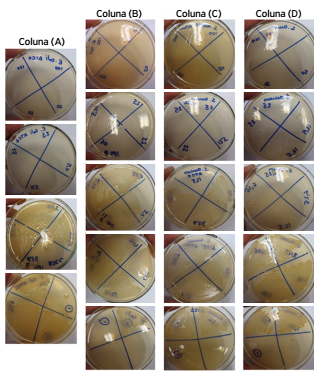ABSTRACT:
Origanum vulgare (oregano) was recognized as a species with several therapeutic properties. Nowadays, its antimicrobial potential has been receiving a large scientific interest. This study aimed at evaluating the antimicrobial activity (bactericidal and bacteriostatic) of an O. vulgare commercial essential oil against strains of Escherichia coli and Staphylococcus aureus bacteria related to food intoxication and infection. Standard (American Type Culture Collection - ATCC) and clinical strains were submitted to the action of an essential oil in different concentrations through microdilution (for determination of minimum inhibitory concentration - MIC) and macrodilution (for determination of the minimum bactericidal concentration - MBC) techniques. Variation in the antimicrobial potential of an essential oil among the tested strains was observed. For E. coli ATCC 25922, the MIC was 6.25 µL/mL and MBC 12.5 µL/ mL, while for the clinical sample, values varied respectively between 12.5 and 25 µL/mL. For S. aureus ATCC 25923, values of MIC and MBC were 12.5 µL/mL, while for the clinical sample they respectively were 6.25 and 25 µL/mL. Thus, the essential oil of O. vulgare showed inhibition power of growth and viability in the tested strains. However, further studies are necessary to determine the optimal concentrations of oregano to act as a natural antimicrobial, considering the factors that influence their composition, and the quantity and quality of active compounds.
KEYWORDS:
antimicrobial activity; oregano; essential oil; Escherichia coli; Staphylococcus aureus

 Thumbnail
Thumbnail
 Thumbnail
Thumbnail
 Thumbnail
Thumbnail




